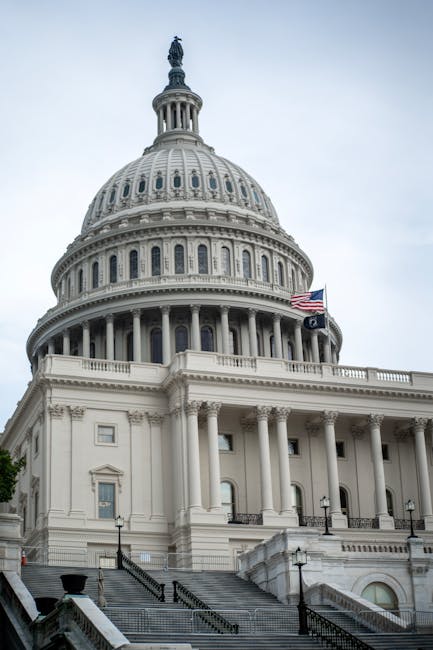US Senate’s Stance on Tipped Income: No Tax on Tips? Unpacking the Complexities
US Senate’s Stance on Tipped Income: No Tax on Tips? Unpacking the Complexities
The taxation of tips in the United States is a frequently misunderstood area of the tax code. While the common perception might be that tips are entirely tax-free, the reality is far more nuanced. The US Senate, like the rest of the federal government, plays a crucial role in shaping the legislation surrounding this issue. This in-depth article explores the complexities of tip taxation, addressing the common misconception of “no tax on tips” and delving into the actual legal framework governing this income stream.
The Myth of Tax-Free Tips
The idea that tips are not subject to taxation is a widespread misconception. Many believe that since tips are given directly by customers, they somehow fall outside the realm of taxable income. This is fundamentally incorrect. Tips, regardless of their source or amount, constitute taxable income under the Internal Revenue Code (IRC).
The IRS clearly states that all tips received, whether declared or not, are subject to both income tax and self-employment tax (for self-employed individuals). Failure to report tips accurately can lead to significant penalties, including interest and back taxes, potentially escalating into criminal charges in severe cases.
How Tip Income is Taxed
The taxation of tips differs slightly depending on whether the individual is employed by an establishment or works as an independent contractor.
Employees: Reporting and Withholding
For employees who receive tips, the process involves several key steps. Employers are often legally obligated to withhold a percentage of reported tip income for taxes. Employees are also expected to report their tips to their employers, usually using a designated form. The employer then reports this information to the IRS alongside the employee’s regular wages.
The employer’s role is crucial in ensuring accurate tax reporting. They are responsible for ensuring proper withholding and reporting procedures are followed. This often involves reconciliation between the tips declared by the employee and any other tip information the employer might have, such as credit card tips or automatic gratuity percentages.

Independent Contractors: Self-Employment Tax
For independent contractors, such as freelance bartenders or musicians receiving tips, the process differs slightly. They are responsible for paying both income tax and self-employment tax on their tips. This means they’ll need to track all their tip income meticulously and pay estimated taxes throughout the year to avoid penalties. Quarterly estimated tax payments are often necessary to meet this requirement.
The self-employment tax is significant as it accounts for both the employer and employee portions of Social Security and Medicare taxes typically withheld from employee wages. Independent contractors must pay the entire amount themselves.

The Role of the US Senate in Tip Taxation
The US Senate, as part of the legislative branch, plays a vital role in shaping tax laws, including those related to tips. While there is no specific legislation that states “no tax on tips,” the Senate’s role is to oversee the IRC and its amendments. This involves debates, hearings, and votes on proposed changes that could affect the taxation of tips, albeit indirectly.
The Senate’s impact is felt through its oversight of the IRS and the Treasury Department, which are responsible for enforcing and interpreting the tax laws related to tips. The Senate can influence the funding and resources allocated to these agencies, indirectly impacting their ability to effectively monitor and enforce tip reporting compliance.

Furthermore, the Senate is actively involved in discussions surrounding broader tax reform. Any significant changes to the tax code could indirectly impact how tips are taxed, for example, through adjustments to tax brackets or deductions. These policy changes are debated and voted upon in the Senate before becoming law.
Legislative History and Proposed Changes
Throughout history, there have been various discussions and proposals related to tip taxation in the Senate. While there hasn’t been a major movement to eliminate the tax on tips, several amendments and bills have been proposed to improve reporting mechanisms, address tax compliance challenges, and offer clarifications to existing regulations.
Some proposed changes have centered on simplifying the reporting process for both employers and employees, while others have focused on strengthening enforcement mechanisms to prevent underreporting. These proposals often undergo extensive scrutiny and debate within the Senate before being adopted, rejected, or amended.
Common Misunderstandings and Clarifications
Several misunderstandings often surround the taxation of tips. Let’s address some of them:
- “Cash tips aren’t taxed”: This is false. All tips, regardless of payment method, are taxable.
- “Tips under a certain amount are exempt”: There is no minimum tip amount that is tax-exempt.
- “If my employer doesn’t ask for tip information, I don’t have to report it”: This is incorrect. The responsibility for reporting tips rests with the employee, regardless of employer inquiries.
- “Only credit card tips need to be reported”: All tips must be reported, irrespective of the payment method.
Consequences of Non-Compliance
Failing to report tips accurately can have severe consequences. The penalties can include back taxes, interest, and even fines. In cases of deliberate tax evasion, criminal charges could be filed, leading to significant legal repercussions.
Conclusion: Navigating the Complexities of Tip Taxation
The notion of “no tax on tips” is a significant misconception. Tips are taxable income under US law, and accurate reporting is crucial for both employees and independent contractors. The US Senate plays a significant but indirect role in shaping this legislation through its oversight of the IRS and its involvement in tax reform discussions. Understanding the complexities of tip taxation is essential for individuals working in tipped industries to ensure compliance and avoid potential penalties.
Individuals should consult a tax professional for personalized advice tailored to their specific circumstances. The information provided in this article is for general guidance only and should not be considered legal or financial advice.






